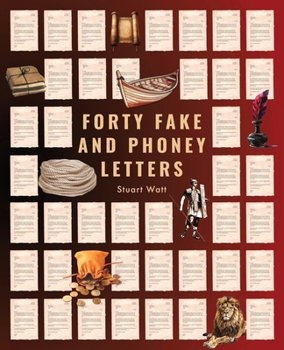Forty Fake and Phoney Letters
Bible characters and events, but not quite as we know them
Laugh your way through the Old and New Testaments with this recently-discovered haul of dubious (but surprisingly insightful) letters. Packed with discussion notes, historical explanations, and ideas for practical application.
Noah is reprimanded by the maritime authority. Delilah writes to complain about a faulty batch of rope. Jonah seeks compensation for unsafe working conditions. Joseph retracts his divorce application. A wine merchant tries to cash in on a new rabbi's lucrative talent, and temple stallholders express concern about a Passover ruckus. Judas writes to seek legal advice, and the Apostle John canvasses a well-known publisher for a book deal.
Format:Paperback
Language:English
ISBN:1991299311
ISBN13:9781991299314
Release Date:November 2024
Publisher:Torn Curtain Publishing
Length:224 Pages
Weight:0.87 lbs.
Dimensions:0.6" x 7.5" x 9.3"
Customer Reviews
2 customer ratings | 2 reviews
There are currently no reviews. Be the first to review this work.





















